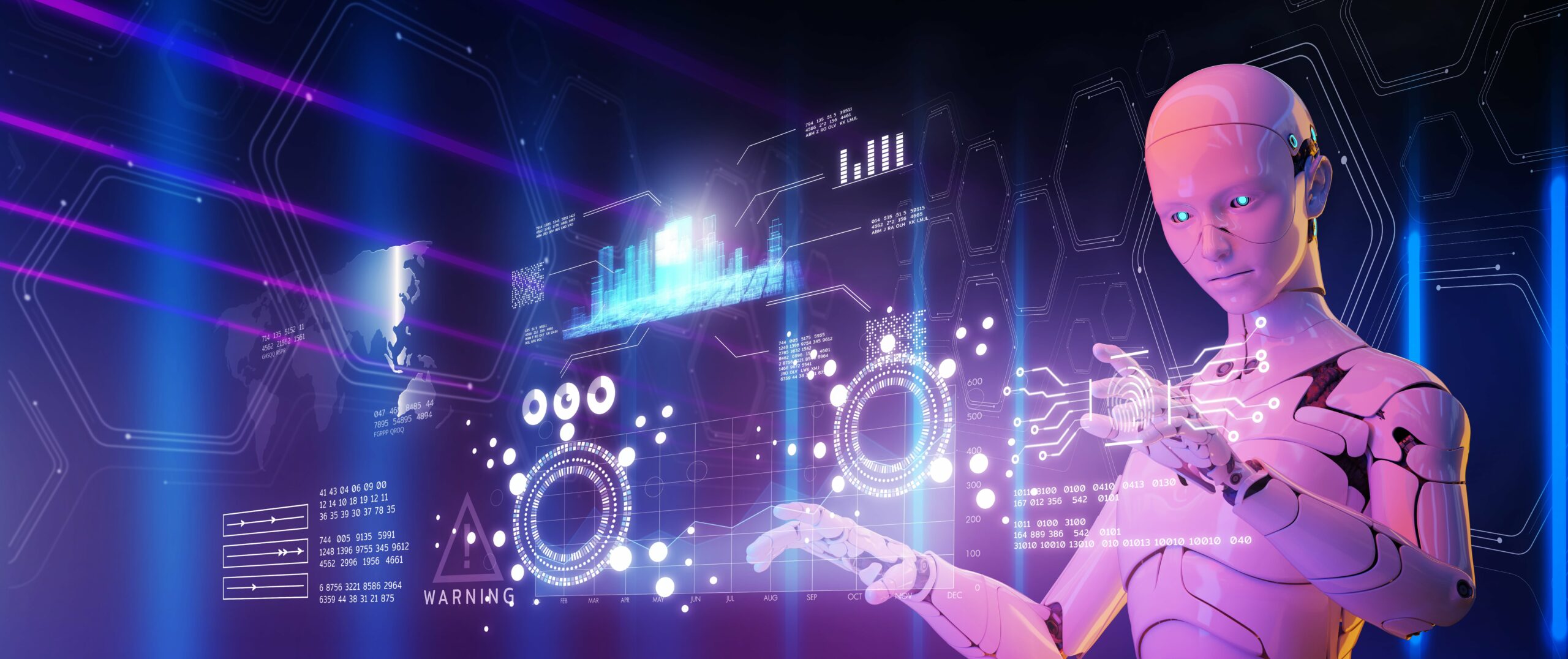The Role of Artificial Intelligence in Cybersecurity

Role of Artificial Intelligence in Cybersecurity
With the emerging trends of A.I. and virtual chatbots, the need for manual codes, snippets, and text where been decreasing drastically. The significant adaptation of artificial intelligence may cause the discussion of creating or destroying jobs. As per the recent article published by Golden Sachs, the potential of Generative artificial intelligence was reflected in the world economy; the adverse usage of tools will make the GDP spike 7% or(7 almost 7 trillion). Also, the productivity rate has increased to 1.5% over 10 years.
Do there any negative impact on Generative artificial intelligence in Cybersecurity Jobs?
According to the concurrence attended by the cybersecurity experts in 2023, RSAC assesses whether the generative A.I. kills the jobs in Cybersecurity. These virtual chatbots and similar programs shouldn’t be viewed as simple replacements but rather as significant resources for technology and security experts, increasing existing cybersecurity efforts and helping to protect networks and data.
Remarkably artificial intelligence in Cybersecurity plays a vital role in enhancing the security facility. It’s time for human-machine will effectively defend against threats and vulnerabilities. Nevertheless, Gerry added that human flexibility and creativity cannot be substituted with Al.
Learn Al in Cybersecurity

In this change in scenario with Al, the Tech and Cybersecurity experts must adapt to the technology as more businesses integrate these apps into their daily operations even while A.I. in its current form is not yet ready to displace jobs and upend careers.
Security analytics and monitoring is a further area where A.I. is used. A.I. algorithms can uncover malicious activity and potential breaches by analyzing user behaviour, system records, and network traffic. This makes it possible for security personnel to react to potential attacks swiftly and successfully.
Tech professionals need to learn how to make these functions and implement the technology into their security strategies after businesses like Google stated at RSAC that they are integrating generative A.I. and large language models (LLMs) technologies into their security and cloud computing solutions.
It’s crucial to remember that using A.I. in Cybersecurity is not difficult. An important issue is adversarial attacks, in which unethical people manipulate or deceive A.I. systems. The efficacy of A.I. systems depends on ensuring their integrity and durability.
Piyush Pandey, CEO of Pathlock, said that A.I. has already demonstrated practical advantages in automating access requests. It expedites routing requests and intelligently assigns entitlements, considering relevant factors. Similarly, regarding periodic access reviews, A.I. has proven valuable in suggesting role optimization strategies to mitigate risks. Thus, it is imperative to develop proficiency in comprehending the essentials of machine learning and deep learning algorithms, as they serve as the foundation of A.I. systems.
Artificial Intelligence in Cybersecurity for the Future
The biggest technology in the cyber domain is probably artificial intelligence. Many businesses are discussing it, and many have already experimented with it in the future. Industries will consider artificial intelligence (A.I.) an impeccable solution for different ideas as businesses advance.
On the other hand, attackers will keep creating increasingly complex programs and other hacking tools that enable them to enter networks undetected as long as security remains an arms race. Security teams must maintain their efforts if they do not keep up with the evolving threat landscape.
Some current applications of Al in Cybersecurity
Threat Detection: With precision, A.I. is utilized to find threats and potential attacks on systems and networks. Machine learning algorithms can examine a large amount of data, identify trends, and identify irregularities that indicate a cyberattack is occurring.
Management of Vulnerabilities: A.I. makes the path of detecting bugs in software and systems by automating the process. A.I. can track the code and find possible vulnerabilities. This lets cybersecurity teams fix the problems before they can be used to harm.
Malware Analysis: With Al, it’s become hassle-free to figure out malware; this equips one to respond faster and protect the system or network. Threat detection tools can use A.I. to predict possible vulnerabilities.
A.I.’s future in Cybersecurity promises a better safe experience, with flawless space for the growth of new ideas. The significant role of Al in Cybersecurity is likely to grow. As A.I. becomes inevitable in Cybersecurity, there will be a growing need for people who know how to use A.I. in Cybersecurity. Remarkably the need for broadening the horizon in Cybersecurity and A.I. technologies and becoming exceptionally inevitable.




 Cybersecurity
Cybersecurity


